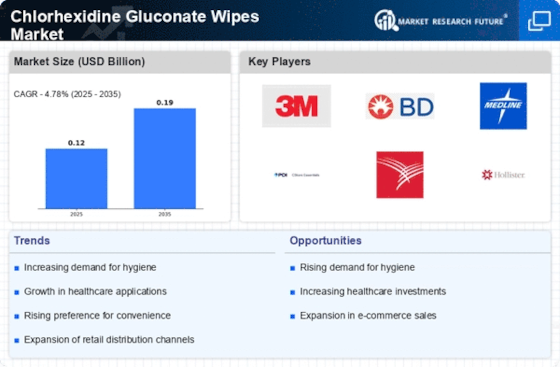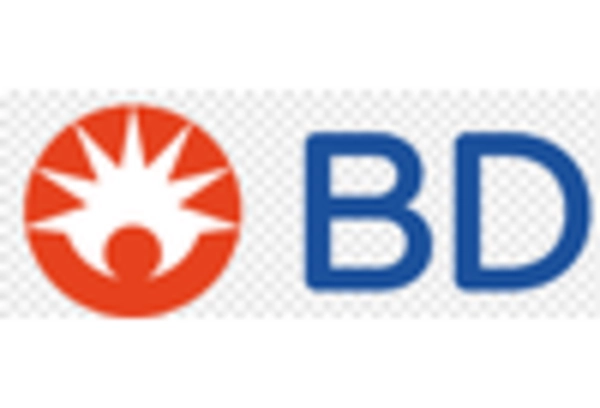Market Share
Chlorhexidine Gluconate Wipes Market Share Analysis
The convergence of technology and education has brought about a paradigm shift in learning methodologies, propelling us into a new era where traditional boundaries are transcended, and students are presented with unprecedented opportunities. The emergence of digital platforms, interactive learning tools, and virtual classrooms has redefined the landscape of education, fundamentally altering how information is disseminated and absorbed. This era of digital education has effectively dismantled geographical constraints, empowering students to access a vast array of resources from virtually anywhere in the world.
The incorporation of digital technologies goes beyond mere convenience; it has sparked a revolution in the very essence of learning. Gamification of education, a concept that employs game elements in non-game contexts, has made learning more engaging and enjoyable. This approach not only captures students' attention but also fosters a sense of competition and achievement, motivating them to delve deeper into their studies. Artificial Intelligence (AI) has become another cornerstone of modern education, enabling personalized learning experiences. AI algorithms analyze students' performance and tailor educational content to their individual needs, optimizing the learning process and accommodating diverse learning styles.
Virtual classrooms, facilitated by video conferencing and collaboration tools, have become integral components of the educational landscape. These virtual spaces allow for real-time interactions between students and educators, creating a dynamic and interactive learning environment. The asynchronous nature of virtual classrooms accommodates diverse schedules, offering flexibility that traditional classrooms may struggle to provide. This shift towards online education is particularly significant in the context of the global pandemic, where it has acted as a resilient and adaptive force, ensuring educational continuity in times of disruption.
One of the most profound implications of this technological revolution in education is the democratization of learning resources. Online education has broken down barriers to access, making quality learning materials available to a global audience. Students who may have been geographically isolated or lacked access to high-quality education now have the opportunity to engage with top-tier educational content. This inclusivity has the potential to bridge educational gaps, empowering individuals who might have been marginalized in conventional educational settings.
As we navigate this transformative journey, the synergies between technology and education continue to redefine the future of learning. The adaptability of digital platforms allows educators to tailor content to diverse learning styles, ensuring a more personalized and effective learning experience. The data generated by these platforms also provides valuable insights into student performance, enabling educators to refine and optimize their teaching methods continually.
While technology enhances the learning experience, it is essential to acknowledge and address challenges such as the digital divide and the need for digital literacy. Disparities in access to technology and the internet may exacerbate existing inequalities in education. Therefore, it is imperative to develop inclusive policies that ensure equitable access to digital resources and skills for all.
In conclusion, the fusion of technology and education has ushered in an era of unprecedented possibilities, transforming how knowledge is imparted and acquired. The multifaceted impact of digital platforms, AI, and virtual classrooms is reshaping the educational landscape, offering a more inclusive, adaptable, and dynamic learning experience. As we harness the potential of these technological advancements, it is crucial to navigate this transformative journey with a commitment to inclusivity, accessibility, and continuous improvement, ensuring that the benefits of technology in education are realized by learners worldwide.


















Leave a Comment